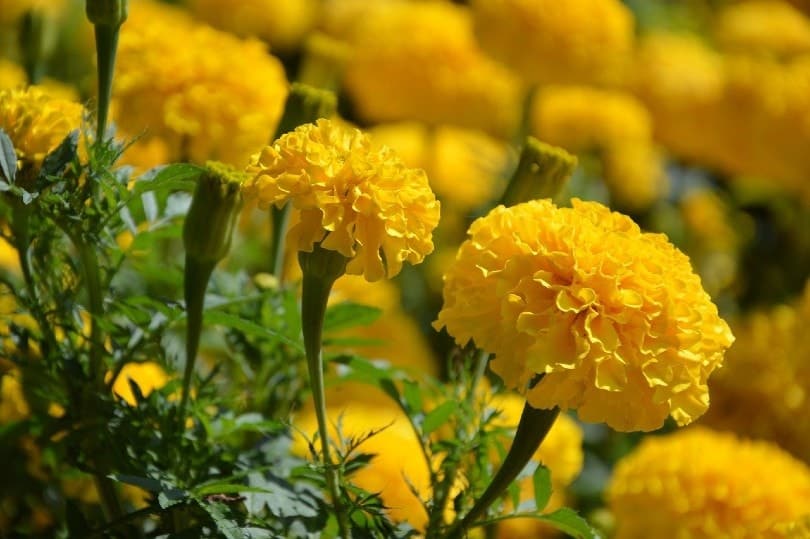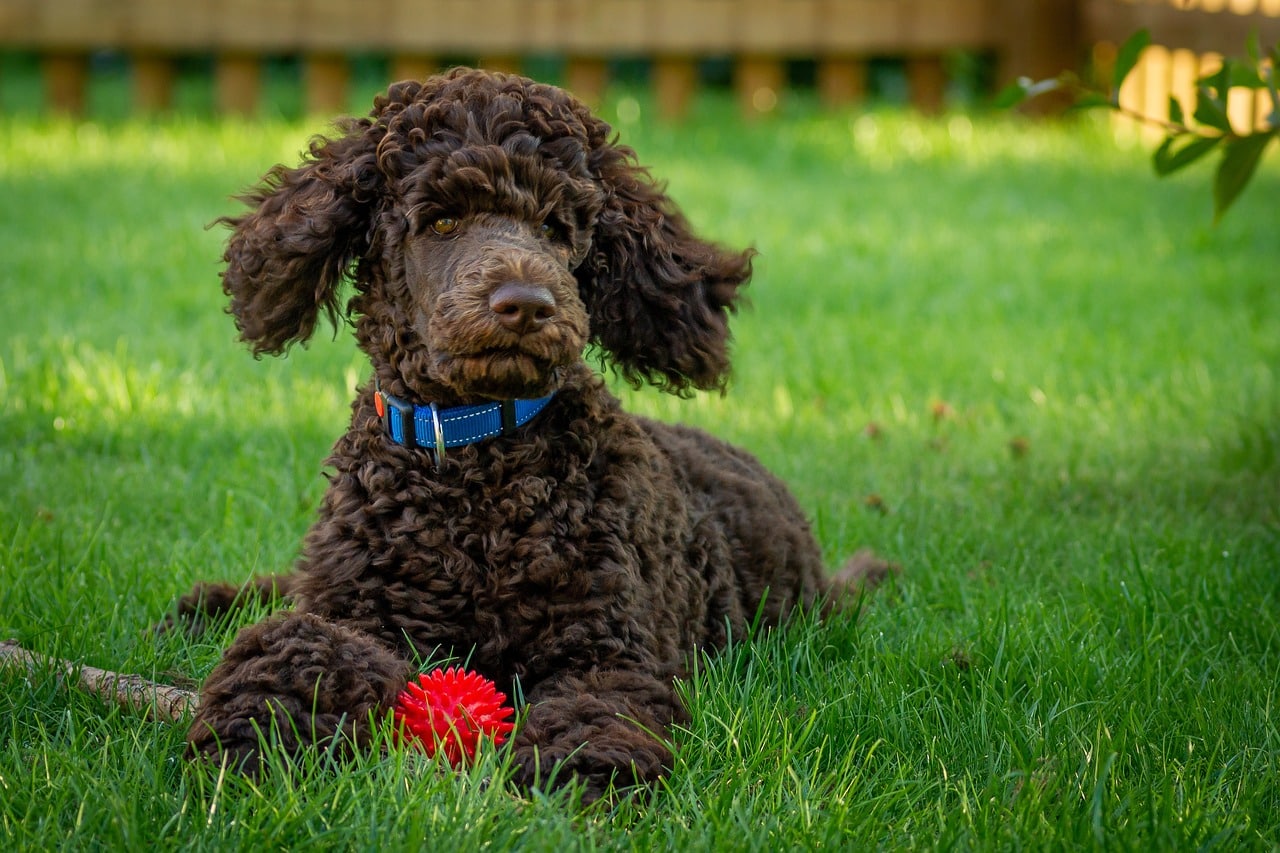Gardening is a joyful activity, but it can bring some concerns if pets are involved. Particularly, if you have a love for marigolds, you might wonder if these vibrant flowers pose any risk to your furry companions.
Understanding the impact of marigolds on dogs is essential for every pet owner. Here’s a comprehensive look into whether these flowers are harmful and what precautions should be taken.
What Is a Marigold?
Marigolds are small, bushy plants boasting vibrant yellow, orange, white, and red blooms. These ornamental flowers are part of the aster family and are well-loved by gardening enthusiasts. They thrive in full sun and are relatively easy to grow, making them a favorite in many gardens.
These flowers can be directly sown into the ground after the last frost or started indoors. They sprout in just a few days and typically begin to bloom around eight weeks after germination. While they prefer full sun, they can tolerate a bit of shade, but over-watering should be avoided as it can lead to mold and mildew.
Marigold Flower vs. Extract
Calendula oil, an extract derived from a type of marigold, has been used for treating skin issues in dogs. VCA Hospitals note its effectiveness in soothing skin abrasions and wounds, and even improving gastric ulcers. However, it should be avoided in pregnant dogs as it may induce uterine contractions.
Although the raw flower might cause mild irritation, the extract is often beneficial. Always consult with a veterinarian before using calendula oil on a dog to ensure it’s the right treatment and discontinue if any adverse reactions occur.
Will Dogs Typically Eat Marigolds?
Dogs are known for their unpredictable eating habits, often consuming items they shouldn’t. While marigolds may attract some dogs due to their bright colors, many dogs might ignore them or simply dig around them out of curiosity.
Some dogs are interested in the wildlife these plants attract and may dig up flowers in pursuit. However, there’s no extraordinary trait in marigolds that makes them especially appealing to dogs in terms of taste.
Marigolds Might Cause Mild Irritation
The Pet Poison Helpline indicates that marigolds are essentially non-toxic but can still cause mild irritation.
If dogs come into contact with marigolds, especially if they roll around in a flower bed, it might result in skin irritation. Dogs may develop redness or bumps where their skin touched the plants.
Ingesting marigolds might make a dog feel queasy. Though rare, symptoms like vomiting or diarrhea can occur, particularly in dogs with sensitive stomachs.
What to Do If Your Dog Ate a Marigold
If a dog eats a marigold, there’s generally no need to panic. The symptoms are typically mild, varying from irritation to slight gastrointestinal upset. Of course, consuming large quantities of marigolds might escalate the symptoms.
Keep an eye on the dog for signs like persistent vomiting, diarrhea, or unusual lethargy. In the event of such symptoms, promptly contact a vet to seek professional advice. The reassurance of a trusted veterinarian’s guidance can be invaluable.
Top 3 Tips for Keeping Dogs Away From Your Flower Garden
Creating a barrier is an effective method. Fencing can be both functional and visually pleasing, preventing dogs from accessing flower beds.
Planting thorny vines is another deterrent. Dogs quickly learn to stay away from prickly plants, reducing the chances of them trampling over or digging up flowers.
Using deterring scents can also work wonders. Certain smells, like coffee grounds, vinegar, and chili pepper, are unappealing to dogs but harmless and even beneficial for the garden.
Marigolds are generally safe for dogs but can cause mild irritation if touched or ingested. Understanding potential risks can help create a safe environment for pets.
Consulting a veterinarian about the use of calendula oil and implementing preventive measures in the garden can further ensure the well-being of both plants and furry friends.










